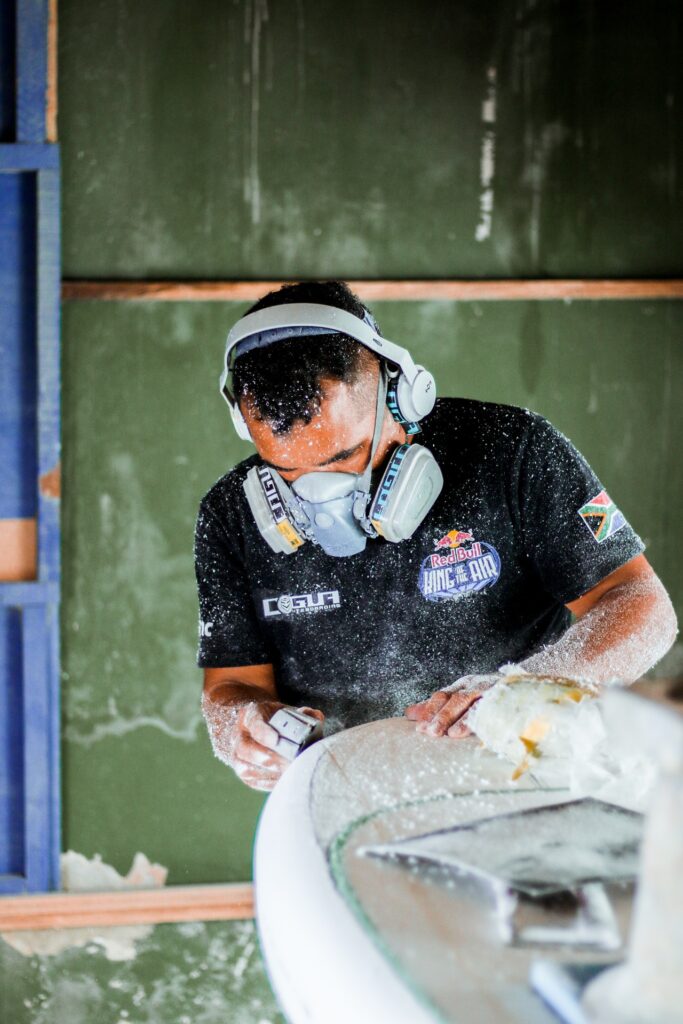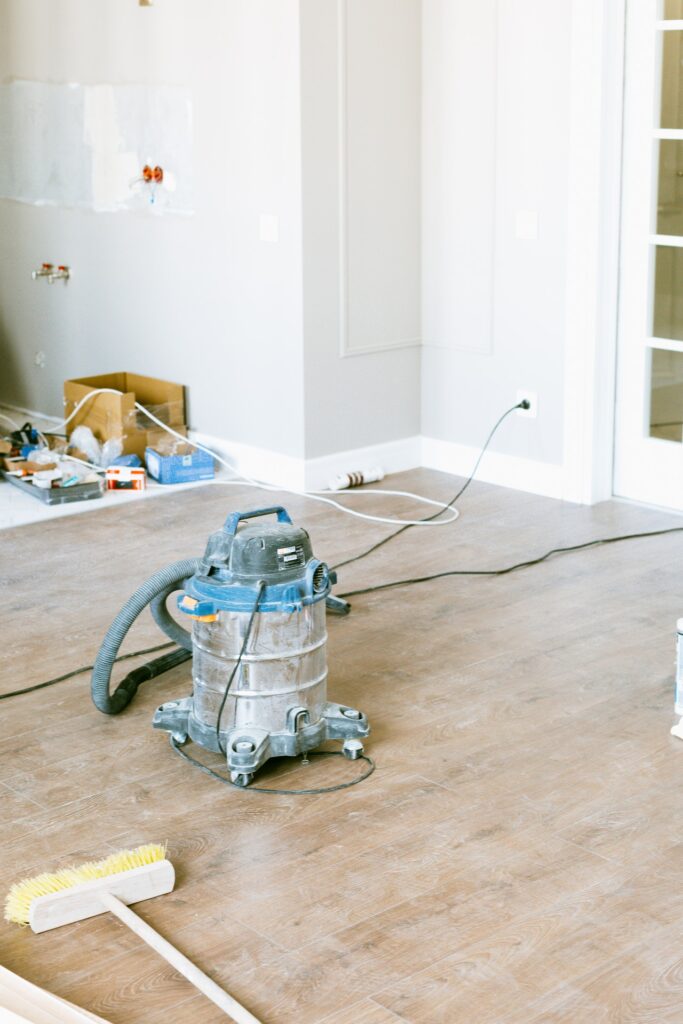Shop air filtration is a topic that is rarely at the front of most people’s minds, especially in a garage setting. Unfortunately, it is one of the most important things that should be budgeted for and thought about when planning your workspace.
This page contains affiliate links in which we receive a small commission at no additional cost to you. As an Amazon Associate I earn from qualifying purchases.
Why is Shop Air Filtration so Important?
Lungs are vital organs for a reason. They take oxygen out of the air and transfer it to our bodies. When dust and particulates enter our lungs, damage can occur, reducing their efficiency. Over time, this can lead to serious health issues.
According to The Canadian Centre for Occupational Health and Safety, “Exposure to wood dust has been associated with health issues due to the natural chemicals in the wood, or substances in the wood such as bacteria, moulds, or fungi”. They go on to say that wood dust is carcinogenic to humans.
While that particular article goes in depth into the effects of wood dust, other dusts found in the shop are harmful to human health as well. You only have one body, and it is important to do what you can to keep it safe, especially in a shop.
Shop Air Filtration: Making Safe Air.
Dust Masks and Respirators
Dust masks and respirators can be a temporary shop air filtration solution. It is still a good practice to wear a dust mask when sanding and grinding, as these processes cause a lot of fine dust.
Wearing a respirator can even help protect you against fumes in addition to dust. It is an especially good idea to wear a respirator when welding, as you are often directly above the fumes coming from the welding process. There are respirators that are designed to fit under welding hoods, like the GVS SPR457 Elipse P100.

Dust masks and respirators don’t improve shop air filtration, and they only help the person wearing it. Once you take off the mask, there will still be dust particles in the air that can enter your lungs.

Dust Collection at the Source
The next shop air filtration step is collecting dust at the source. Most stationary power tools have some sort of dust port. These dust ports are meant to be hooked up to a central dust collection system.
Wet/Dry Vacuum System
Dust collection systems come in a few styles. The cheapest option is to use a wet/dry vacuum. There are all kinds of adapters and extensions available for wet/dry vacuum systems. It is just a matter of finding out what fits your machine and works for you.
Vacuum based systems are simple to use. Hook up the hose to the machine, turn on the vacuum, and that’s it. When you turn the machine off, you turn the vacuum off. There are remotes available that will automatically turn on the vacuum when you turn on your equipment.
There are some downsides with a wet/dry vacuum dust collection system. First, they are small and have to be emptied often. Second, they are loud. Finally, you have to move it from machine to machine in your shop for the best efficiency. For a small shop, this isn’t as big of an issue as it would be in a larger shop.
Vacuum Based systems will benefit from a dust cyclone that separates big chips from the fine dust. It will reduce how often the vacuum needs to be emptied, but it improves efficiency. This does come with a cost: It takes up more floor space.

Central Dust Collection System
If you have a larger shop and have the room, you can install a central dust collection unit. A central dust collection system has a large motor and fan that stays stationary in your shop. Tubing and hoses are installed that run to each machine in your shop. You can also run hoses to a couple floor ports around the shop, and even the top of your work bench, to make sweeping up easier. A central dust collection system like this goes a long way to aid in shop air filtration.
While the motor and fan still make noise, you can place the dust collector in a far corner of the shop. You also don’t need to move this from machine to machine, so while you are working you won’t be right next to it. This is the most expensive option, and really only an option for a large shop that has the room for the unit and permanently mounted tubing. When installing a central dust collector, certain things like grounding the tubes need to be taken into consideration.
Larger dust collection systems don’t need to be emptied as often as a wet/dry vacuum system. They also use larger tubing for the main lines and can support multiple pieces of shop equipment at once. When planning a dust collection system, make sure you plan the tubes and hoses ahead of time and figure this cost into the total project.
Fume Extractors
Shop air filtration isn’t just about dust. Many hobby processes give off fumes that can be toxic or otherwise hazardous to your health. A fume extractor is designed to remove harmful fumes from the immediate work area through fans and filters. There are bench top options for things like soldering, brazing, and painting.

When Soldering, you are working directly over the workpiece. You don’t want to breathe in all of the fumes melting solder and flux give off. This is the perfect situation for a bench top fume extractor because usually the items being soldered are small.
It is still a good idea to make sure there is plenty of airflow and ventilation in the shop when fumes are a concern.
Shop Air Filtration System
The final piece to the shop air filtration puzzle is a dedicated air filtration unit. These units typically are ceiling mounted. They move air through filters and trap all of the fine dust particles.
An air filtration unit should be used in conjunction with other dust collection equipment. They are designed to handle the small particles that escape your dust collection system, not the bulk of the dust from sanding or cutting. Units for a small shop or garage can be pretty affordable. Keep in mind that there are filters that need to be cleaned or replaced on a regular basis.

Because shop air filtration units are ceiling mounted, they don’t take up any floor space. They are also fairly quiet, and can be turned on when other machines are off. In addition, they will create air movement within the shop that can help bring fresh air in.
Final Thoughts
Shop air filtration is a multistep process, and there should be a combination of systems working together in order to provide the cleanest air possible in your shop. It is best to look at your space, figure out what requirements you have, and what equipment needs to be budgeted for. Remember, you can install shop air filtration equipment in steps, it doesn’t all need to be done at once. Some filtration is better than no filtration.
If you are making a lot of dust in your shop, its worth checking out our post on sandpaper storage solutions to tidy up. Once your air filtration is sorted out, its time to find a garage stereo.

